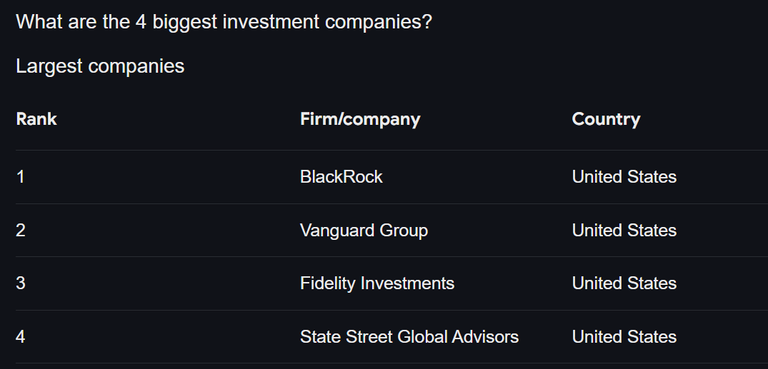When it comes to the game of playing chicken, it all comes down to who blinks first - Who swerves out of the way. And in the case of the game being played between the US and China, it is the US that has backed down, by exempting a whole range of consumer electronics and components, because of the skyrocketing prices the tariffs have applied to buyers in the US. I guess American voters are finally working out how tariffs work, and where those billions are going to come from - Americans.
Tariffs are a tax on the buyer.

If Beijing really wanted to exert some pressure now, they should increase the prices of everything sold into the US that they have exempted by a significant percentage, to actually make some money from the tariffs for the Chinese companies. And, the Rest of the World could be doing the same, where instead of the tariffs making it unprofitable to sell into the US, increase the prices on everything the US is unable to produce for itself adequately, to offset the loss of sales from whatever tariffs they have been subjected to.
But reduce prices a little for all other countries.
Instead of the US continuing to use the world to maintain its dominance as the world's largest single economy, the Rest of the World could be using the US to finance the development of a stronger global marketplace by increasing the buying power of consumers globally. A single market is very attractive for producers and sellers, but as we can see, it comes with risks, so distributing the marketplace and reducing reliance on a single customer, mitigates the risk of an abusive conglomerate.
Economies of scale means that there is the ability to reduce prices at volume, but the main way to do so is that it is possible to both buy in bulk at cheaper prices, and put pressure on suppliers to reduce prices. This means that while more profits can be made at the end of the supply chain, all the suppliers get systematically crushed in the earlier stages, with continually more pressure being applied to them to drop prices further, and further, as the buyers up the chain want more profits. And often, the early sellers in the supply chain are coming from the poorer countries - places where many people live in poverty, despite working very long hours in terrible conditions.
So the largest economy can enjoy cheap products and make enormous profits.
While Trump is selling the narrative that the rest of the world is getting rich off of the US, that is not actually the case. If it was the case, the massive investment companies like BlackRock, Vanguard, Fidelity and State Street Global would be losing money - not making unprecedented gains.

15 of the top 20 are US investment companies.
There is one French, two German, a Swiss and one from the UK for the other 5.
The current US administration led by Trump is looking to break the assumptions of the global economy, but it is also expecting that the countries it is looking to harm will accept their fate and try to maintain global stability, effectively giving increasing concessions to the US. However, it is possible for the Rest of World to play a convention-breaking game too and disrupt the global order by controlling prices it sells into the US. While the US will take a long time before it is able to build industry to replace global suppliers, the rest of the world doesn't need anything vital that only comes from the US.
Twinkies? Pop-tarts?
The US has a brilliant service economy, but it is enabled by a global supply chain of materials and products from the rest of the world. If the cost of that supply increases, the consumer spending decreases, and the corporations that are in the service business, are unable to survive, because they are very, very top heavy in their structure. They need to sell in order to make money, but what they sell they don't produce locally or likely own at all.
The global investors like BlackRock and Vanguard are invested into many of the global business so that they can skim profits from each stage and help crush down supply costs, but they too rely on the end consumer purchasing. As does Meta and Google who rely almost entirely on ad revenue. And then, Amazon which is only possible because of the massive amount of its content coming from China and other similar countries to keep them competitive and cheaper than "bricks and mortar" stores.
Remember, that globalisation is what enabled these US companies and many more US companies to become extremely wealthy and the most valuable on earth. If the supply chain costs increase, they are unable to operate anywhere near as effectively, and their profits will suffer incredibly. Not just the perception of the brand affects the price, there is a reality in the product offering too.
If the Rest of the World chooses to take advantage of the supply chain streams going into the US, they are able to enact a massive cost upon the country at minimal expense, because they can offset it through increased trade elsewhere. And for a time, this would be enormous while the US ramps up its production. But, even once the production is up and running, the costs will be higher for the consumer and they will have less export opportunity as the RoW has adjusted to a new economic structure. The US will end up with more production, but only able to sell locally, but locals can't afford to consume like earlier, because they are no longer benefitting from the supply chain scales of economy they enjoyed prior to this Trump-led trade war.
The US may have lost control of the economy.
As the largest consumer market, the US was able to dictate a lot of terms and influence a huge amount of the global trade, which also gave them a lot of say in world affairs. But, with a little coordination, the rest of the world can weaken the US economy and its ability to consume, reducing its share of trade from a majority shareholder, to a large minority. And, the only response that the US can really have is to do what it has been doing to get where it is in the first place, which is to increase its debt to stimulate more consumption. But, this isn't good for the US either, because that is going to give another reason to minimize the US dollar as the main reserve currency, and its place as the medium of exchange.
This might backfire spectacularly on the US.
And if you are like me and looking for a healthier, more distributed economy -
That is a good thing.
Just don't blink.
Taraz
[ Gen1: Hive ]
Trump will sooner or later retreat from his tariffs policy due to the reasons you mentioned above. Also USD might lose being the currency of the world and a new China or EU based market could be built.
Hopefully if they change currency, they go with something that is distributed. There are massive problems having it the way it is.
If the main competitor for the USA is China, then let them move their production from China to India. Otherwise, I will not buy a MacBook made in America for $3,000, I am ready to pay only $1,000. Electronics production only in the USA means higher prices and lower sales.
And I think that this is what the average American is going to realise as well, aren't they? How much do they have to earn to be able to afford 3-4000 for an iPhone?
Your argument and thoughts are interesting. You probably want to see a decline in the monopoly that the US enjoys in the global economy!Dear @tarazkp !
By the way, Taiwan, Japan, and South Korea are worried that China will dominate all of East Asia, so they want the United States to overwhelm China.
I get your fear of China, but people should be equally fearful of the US currently also. They aren't going to do anyone any good - except a few of themselves.
😲
My friend @trazkp, you raise an interesting analysis of the US-China trade war, highlighting how tariffs affect US consumers more than Chinese exporters. While you mention that ‘tariffs are a tax on the buyer’, you omit to elaborate on how this dynamic could incentivise the relocation of strategic industries to the US, although you acknowledge the short-term challenges. Your proposal that the rest of the world (RoW) should raise prices to take advantage of tariffs is unrealistic, as it could accelerate the loss of global competitiveness. Moreover, he underestimates the weight of the dollar as a reserve currency, which is difficult to replace quickly. Your vision seems idealistic, but faces practical limitations. Only time will tell.
Global competitiveness is surrounded by competing for what is largely a single market. Redistribute and incentivise consumption in other markets, and there is still competition, but the US can't compete in a lot of it and maintain their current salaries.
When it comes to the reserve currency using the US dollar, there has been increased pressure for a long time, and over the last few decades, it has gone from 85 percent of the reserve to 54 percent or so. The reserve is only useful when it is reliable and relatively stable, and if the rest of the world enact production supply costs, that won't be the case.
Discord Server.This post has been manually curated by @steemflow from Indiaunited community. Join us on our
Do you know that you can earn a passive income by delegating to @indiaunited. We share more than 100 % of the curation rewards with the delegators in the form of IUC tokens. HP delegators and IUC token holders also get upto 20% additional vote weight.
Here are some handy links for delegations: 100HP, 250HP, 500HP, 1000HP.
100% of the rewards from this comment goes to the curator for their manual curation efforts. Please encourage the curator @steemflow by upvoting this comment and support the community by voting the posts made by @indiaunited.
Cheers @steemflow
Your analysis and thoughts are very interesting! I wonder what move will Trump pull next… 🤦🏼♀️
I wouldn't bet against team USA 😀
Once this Trump thing blows over we will be back stronger than ever. Might take a few years, but we are not going anywhere...
Meanwhile, the collateral damage continues.
You're right, the US-China trade war is hurting Americans. Tariffs are like taxes on imports, and the US is backing down. If other countries raise prices on US goods, it could hurt the US economy. It's a complex issue, but something's gotta give.